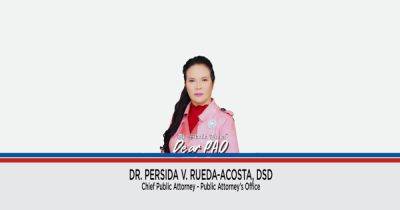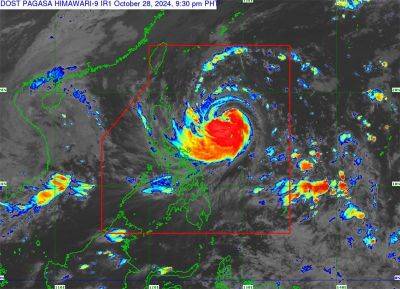Ambiguity in complaint may not be questioned if proper remedies are not timely availed
Dear PAO,
A complaint for murder was filed against my neighbor, X, alleging that he killed Y with evident premeditation. Assuming the case goes to trial and X is convicted, can he question the court's judgment on the ground that the allegation of evident premeditation is imprecise or ambiguous, as the circumstances involving such evident premeditation were not specified?
Matias
Dear Matias,
Our Constitution requires that a person accused of a crime be informed of the nature and cause of the accusation against him or her (Section 14 (2), Article III, 1987 Philippine Constitution). The right of the accused to be informed extends not only to the basic elements of a crime but also to any circumstances which may qualify or aggravate it. This right is explicitly reinforced under Section 1, Rule 115 of the Revised Rules of Criminal Procedure («Rules»):
«Section 1. Rights of accused at the trial. — In all criminal prosecutions, the accused shall be entitled to the following rights:x x x
»(b) To be informed of the nature and cause of the accusation against him. x x x"
The remedy of a person who is accused of a crime, if the complaint or Information is imprecise or ambiguous, is to file a Motion for Bill of Particulars prior to arraignment. As stated under Section 9 of Rule 116 of the Rules:
«Section 9. Bill of particulars. — The accused may, before arraignment, move for a bill of particulars to enable him properly to plead and to prepare for trial. The motion shall specify the alleged defects of the complaint or information and the details desired.»
Alternatively, the person so accused may file a Motion to Quash prior to his arraignment. It is specifically provided for under Section 3(e) of Rule 117 of the Rules:
«Section 3. Grounds. — The accused may move to quash the complaint or information on any of the following grounds: x x x
»(e) That it does not conform substantially to the prescribed form;"
It bears emphasis that an accused who fails to avail of any of the aforementioned remedies and participates during the trial loses the right to question such ambiguity on appeal. Corollary, in the situation which you have mentioned, X may no longer question







